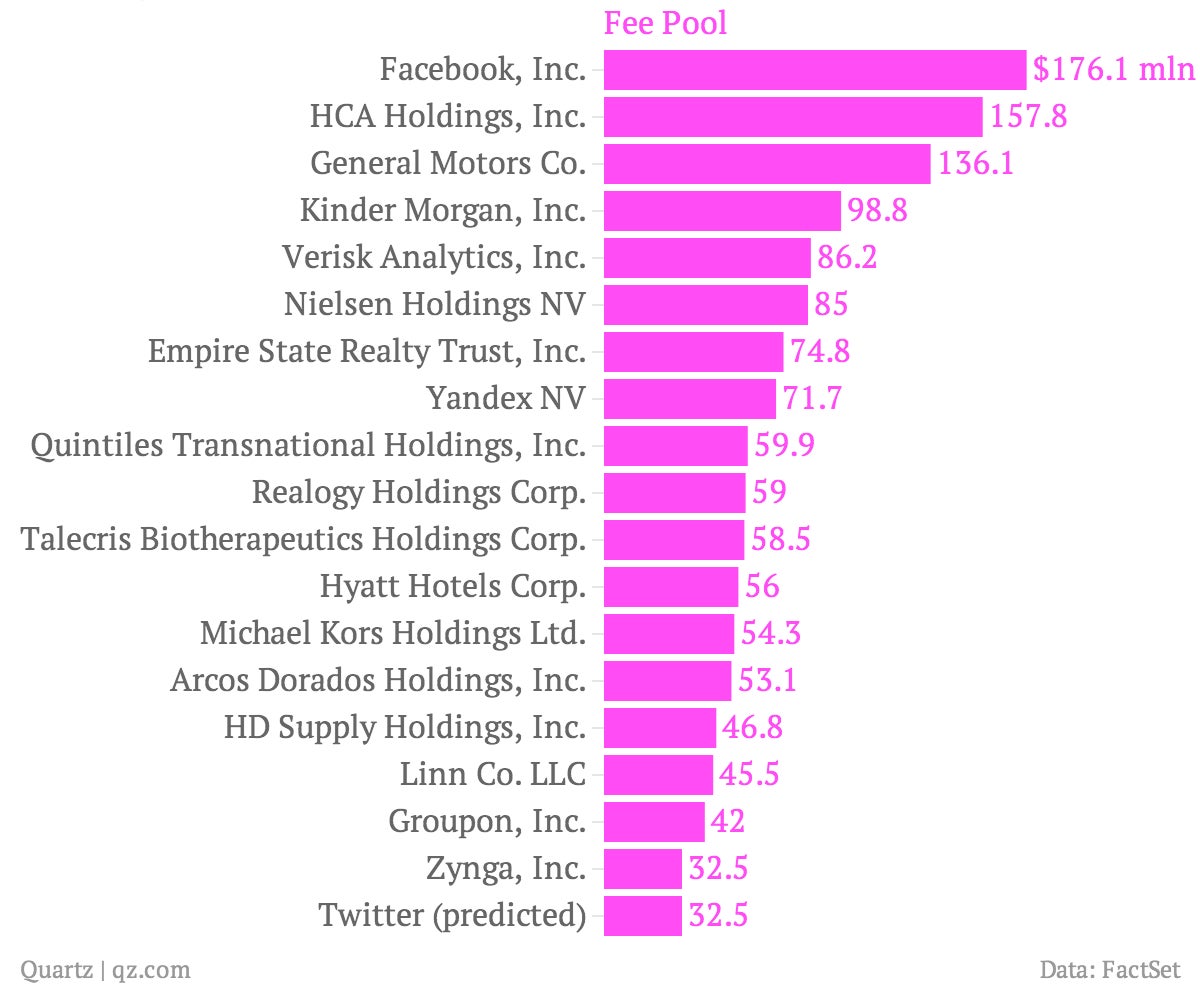Twitter could make Wall Street the least money of any big US IPO since 2008
We’ve already explored Twitter and Facebook’s wildly divergent revenue and user-growth trajectories. But it seems the differences between the two social media giants extend to the way they treat their investment bankers.

We’ve already explored Twitter and Facebook’s wildly divergent revenue and user-growth trajectories. But it seems the differences between the two social media giants extend to the way they treat their investment bankers.
As Bloomberg reported on Saturday, Twitter is expected to pay its bankers, led by Goldman Sachs, a fee of about 3.25% to underwrite its initial public offering, expected to be $1 billion or more. The Wall Street Journal takes things a step further (paywall), saying Twitter is “squeezing” its bankers to get “unusually favorable terms” in the IPO.
That is more than three times as much Facebook paid, in percentage terms, for its mammoth IPO last year. However, Facebook raised much more equity ($16 billion to be precise), so the total fee was a lot higher. Perhaps fairer comparisons are LinkedIn, which paid a 7% fee to raise about $406 million, and Groupon, which paid 6% to raise $700 million, both in 2011. It could be a case of banks being desperate to get on the hottest IPO of the year, or the company flexing its muscles after Facebook’s foibles; whichever way you look at it, Twitter is getting a good deal.
What is striking, though, is that while Facebook’s troublesome IPO was a honeypot for bankers, generating the biggest fee pool since 2008 (even more than General Motors’ larger offering of $18 billion in stock), Twitter’s promises to be hardly that. In fact, Twitter’s IPO could be the least lucrative in terms of fees (but see disclaimers below), alongside Zynga’s, for US offerings of $500 million and above in the post-financial–crisis era, according to data we have compiled from FactSet.
Yet for lead underwriter Goldman Sachs and the other banks on the ticket—JP Morgan and Deutsche Bank—fees are only a small part of the equation. Twitter’s remains the most important IPO of 2013, and possibly beyond. Being involved carries a lot of prestige, and makes it easier for the banks to pitch for future advisory mandates from Twitter itself, should it be involved in acquisitions, and for underwriting roles in other high-profile IPOs.
Disclaimers: We have calculated the fees using gross spreads (the differences between the prices companies receive for their stock from underwriters, and the prices paid by the public at issue). In reality, fee structures can be more complex. And we assume an IPO size of $1 billion for Twitter, which the company specified in its S-1 filing—but it could end up being increased.